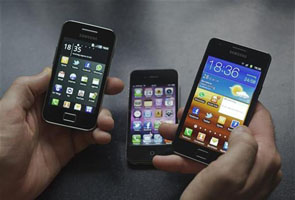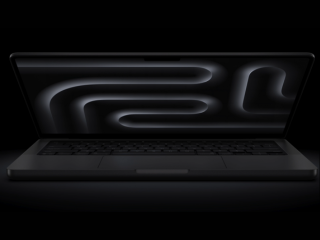- Home
- Mobiles
- Mobiles News
- Apple: iPhones created design crisis for Samsung
Apple: iPhones created design crisis for Samsung

Lawyers for Apple showed an internal Samsung document that likened the look of their rival gadgets to "Heaven and Earth."
But Samsung strategy chief Justin Denison called that kind of language "hyperbole," saying it sounded like something senior executives would have used to motivate and energize employees.
"What we would like to be able to do is just compete in the market," Denison said. Asked by Apple attorney Bill Lee whether there was a difference between competing "fairly and squarely" and taking someone else's intellectual property, he said: "Yes."
Apple later called Peter Bressler, a college professor with electronics design experience and some 70 patents to his name, who analyzed a number of Samsung Galaxy gadgets and the iPhone and iPad.
They were "substantially the same", said Bressler, who lectures at the University of Pennsylvania and founded the design firm Bressler Group. He has worked with clients including Motorola in the past.
"The aesthetics they (Apple) were trying to achieve were particularly difficult and expensive," said Bressler, who said he read numerous depositions of Apple employees and discovered the company employed special machine processes, for instance.
Apple and Samsung are going toe-to-toe in a high-wattage patents dispute, which mirrors a fierce battle for industry supremacy between two rivals that control more than half of worldwide smartphone sales.
Behind the veil
Bressler examined a number of gadgets, Apple's patents on file, and even a Wired article before forming his conclusion that Samsung had borrowed multiple Apple design elements.
But under cross-examination from Samsung's lawyer, he said consumers ultimately were unlikely to confuse the two brands a key contention in the case.
The U.S. company accuses Samsung of copying the design and some features of its iPad and iPhone, and is asking for billions of dollars in damages and sales bans. The Korean company, which is trying to expand in the U.S. market, says Apple infringed some of its key wireless technology patents.
The trial began last week and has already granted Silicon Valley an unprecedented peek behind the curtain of Apple's famously secretive design and marketing machine.
On Friday, lawyers showed Apple Vice President Eddy Cue urging then-Chief Operating Officer Tim Cook in January 2011 to build a mini-iPad because he believed there was a market for a seven-inch tablet. Late co-founder Steve Jobs was "receptive" to the idea, according to Cue's email, fanning speculation Apple plans to make a mini-iPad to take on cheaper gadgets from Google Inc and Amazon.
Copyright Thomson Reuters 2012
For details of the latest launches and news from Samsung, Xiaomi, Realme, OnePlus, Oppo and other companies at the Mobile World Congress in Barcelona, visit our MWC 2026 hub.
Related Stories
- Samsung Galaxy Unpacked 2026
- iPhone 17 Pro Max
- ChatGPT
- iOS 26
- Laptop Under 50000
- Smartwatch Under 10000
- Apple Vision Pro
- Oneplus 12
- OnePlus Nord CE 3 Lite 5G
- iPhone 13
- Xiaomi 14 Pro
- Oppo Find N3
- Tecno Spark Go (2023)
- Realme V30
- Best Phones Under 25000
- Samsung Galaxy S24 Series
- Cryptocurrency
- iQoo 12
- Samsung Galaxy S24 Ultra
- Giottus
- Samsung Galaxy Z Flip 5
- Apple 'Scary Fast'
- Housefull 5
- GoPro Hero 12 Black Review
- Invincible Season 2
- JioGlass
- HD Ready TV
- Latest Mobile Phones
- Compare Phones
- Apple iPhone 17e
- AI+ Pulse 2
- Motorola Razr Fold
- Honor Magic V6
- Leica Leitzphone
- Samsung Galaxy S26+
- Samsung Galaxy S26 Ultra
- Samsung Galaxy S26
- MacBook Pro 16-Inch (M5 Max, 2026)
- MacBook Pro 16-Inch (M5 Pro, 2026)
- Apple iPad Air 13-Inch (2026) Wi-Fi + Cellular
- Apple iPad Air 13-Inch (2026) Wi-Fi
- Huawei Watch GT Runner 2
- Amazfit Active 3 Premium
- Xiaomi QLED TV X Pro 75
- Haier H5E Series
- Asus ROG Ally
- Nintendo Switch Lite
- Haier 1.6 Ton 5 Star Inverter Split AC (HSU19G-MZAID5BN-INV)
- Haier 1.6 Ton 5 Star Inverter Split AC (HSU19G-MZAIM5BN-INV)
















